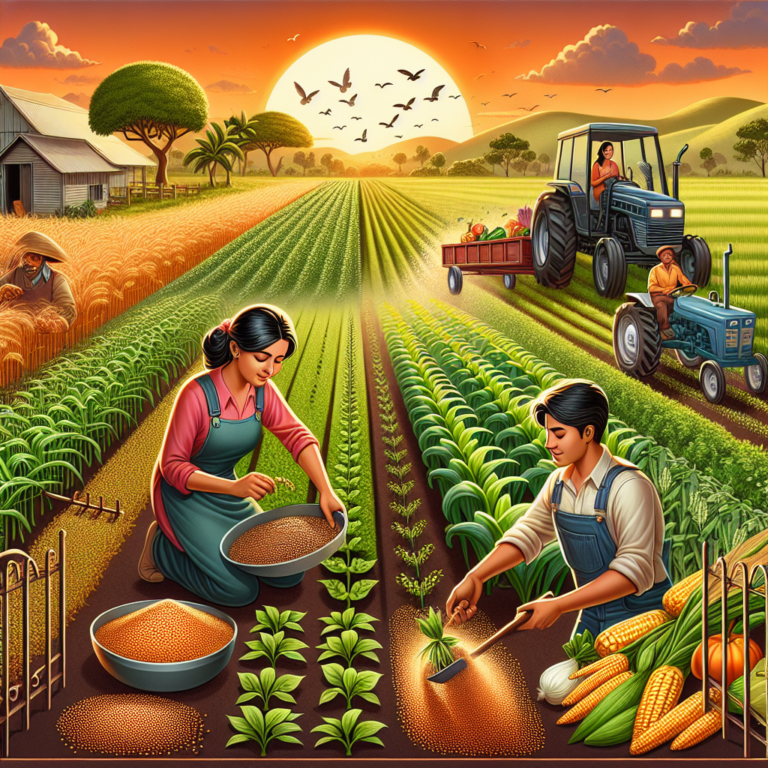In today’s world, with a rapidly growing population and limited resources, the need for increased crop yields has never been more important. Farmers are constantly seeking new ways to improve their agricultural practices in order to produce more food and meet the demands of a growing population. From seed to table, farmers are implementing innovative techniques and technologies to increase crop yields and ensure food security for future generations.
One key way that farmers are increasing crop yields is through the use of genetically modified seeds. These seeds are designed to have specific traits that make them more resistant to pests, diseases, and extreme weather conditions. By planting genetically modified seeds, farmers can produce higher yields with fewer inputs, such as pesticides and fertilizers. This not only saves farmers money, but also reduces the environmental impact of agriculture.
Another important factor in increasing crop yields is the use of precision agriculture techniques. Precision agriculture involves using data and technology to manage agricultural practices more efficiently. Farmers can use GPS technology and sensors to monitor crop growth and health, allowing them to apply inputs such as water and fertilizers precisely where they are needed. This results in higher yields and reduced waste, as well as improved soil health and sustainability.
In addition to genetics and technology, farmers are also implementing sustainable farming practices to increase crop yields. Practices such as crop rotation, cover cropping, and conservation tillage help to improve soil health and fertility, leading to higher yields over time. By using these sustainable practices, farmers can protect the environment while also increasing the long-term productivity of their land.
Overall, the journey from seed to table involves careful planning, innovation, and hard work on the part of farmers. By utilizing genetically modified seeds, precision agriculture techniques, and sustainable farming practices, farmers are able to increase crop yields and ensure food security for the future. As the world’s population continues to grow, it is essential that farmers continue to improve their agricultural practices in order to meet the demands of a hungry world. The future of agriculture depends on the ability of farmers to adapt and innovate in order to increase crop yields and feed a growing population.
